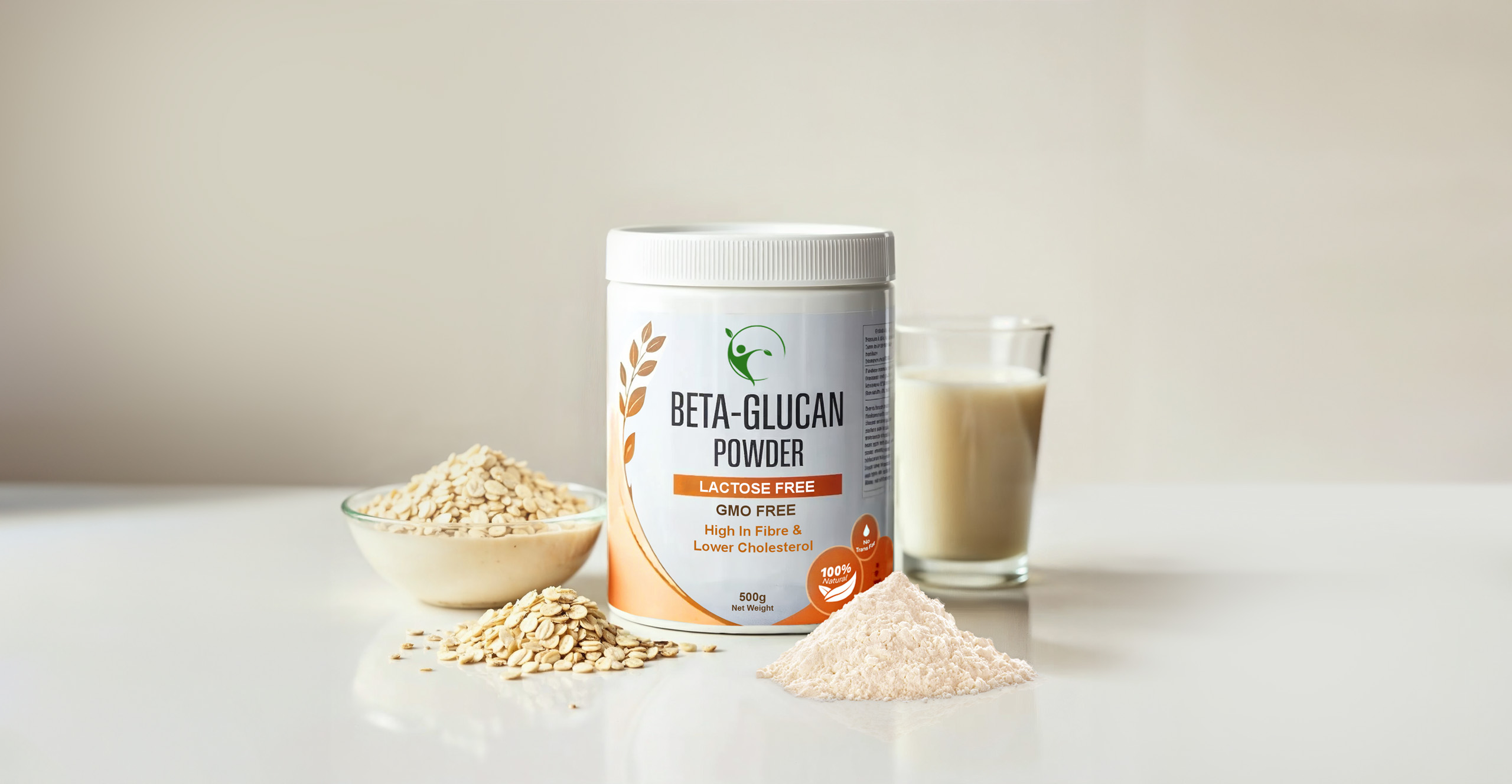Cardiovascular disease remains one of the leading causes of death worldwide, with high blood cholesterol being a major risk factor. Beta glucan, a soluble dietary fibre naturally found in oats and barley, is well recognised for its cholesterol-lowering properties.
The European Food Safety Authority (EFSA) has approved health claims for beta glucan from these cereals, stating that a daily intake of at least 3 g can help reduce blood cholesterol. Oat beta glucan is believed to achieve this by binding bile acids and cholesterol in the small intestine, while also influencing the colonic microbiome and short-chain fatty acid production¹.
Research indicates that the intake of a beverage containing 1 g of high-molecular-weight oat beta glucan three times a day for a duration of four weeks led to a significant reduction in LDL cholesterol levels by approximately 6% and a decrease in cardiovascular disease risk by around 8% among healthy adults with LDL cholesterol levels ranging from 3 to 5 mmol/L2. These findings highlight the importance of incorporating beta-glucan-rich foods into one’s diet for cardiovascular health.
Beta Glucan Functional Claims in Indonesia, Malaysia & Thailand
In many countries, functional claims related to cholesterol-lowering effects must be supported by scientific evidence and comply with local regulatory standards. Products containing beta


